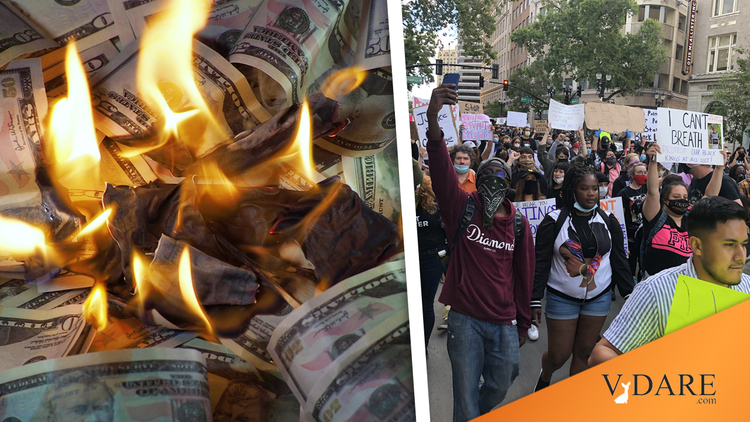


07/22/2023
From the Washington Post news section:
Activists split over whether reparations should go to Black immigrants
By Emmanuel Felton
July 20, 2023 at 6:00 a.m. EDTBOSTON — When this city announced earlier this year that it would consider giving reparations to its Black residents, it was heralded as another victory in a national movement to offer recompense for the legacy of slavery and Jim Crow segregation.
The more anti-slavery a place was in the 1860 election, the more likely it is to vote for reparations during the “racial reckoning.”
The city had played a key role in financing the slave trade and was the site of fierce resistance to integration. Now, advocates said, it was time to address the lingering damage.
But as the mayor started choosing members for the Boston task force, the city quickly became one of the chief battlegrounds of an adjacent fight playing out within the Black community: Should reparations programs be limited to people who trace their ancestry back to American slavery, or should they include Black immigrants who came to the country by choice?
… According to a 2023 Washington Post-Ipsos survey, 75 percent of Black Americans think the federal government should pay reparations, including 77 percent of native-born Black people compared with 59 percent of foreign-born Black people. …
In Boston, the distinction could drastically impact the reach of the panel’s recommendations. Black residents make up 19 percent of the city’s overall population. But 37 percent of that population is foreign-born, the highest rate of any metropolitan area in the country, according to a recent study by the Boston Foundation.
… The city soon found itself the target of a loosely organized group of activists, calling themselves Freedmen, waging a nationwide campaign to keep reparations programs limited to descendants of enslaved people.
… Freedmen activists are facing opposition from advocates who say the slave trade and its legacy have affected the lives of every Black person in America, no matter when their ancestors arrived — with some even calling for reparation dollars to be sent to Africa.
“One of the things that actually unites all African people is the right to reparation, because we were all damaged by this transatlantic slave trade and this experience of slavery,” said Amilcar Shabazz, professor of history and Africana studies at the University of Massachusetts at Amherst. …
Activists have also descended two hours west of Boston, where Floyd’s death sparked multiple protests in Amherst, Mass., followed by months of calls for reform in the progressive college town. In 2020, the town’s council voted to “end structural racism and achieve racial equity for Black residents.” Then, the next year, it formed the Amherst African Heritage Reparation Assembly and pledged to create a fund.
… But they have not seriously considered excluding the 40 percent of the city’s Black population born outside the United States, board members say.
That has angered Freedmen activists. “This needs to be lineage-based,” Jaylynn Conway, a Boston-based activist, said after joining a December committee meeting over Zoom. “If not, you would be giving away our money to immigrants who came over here willingly. We came over here forcibly because we were sold by our own people.”
Shabazz, the University of Massachusetts professor and a member of Amherst’s reparations task force, immediately rejected demands that the panel stop calling its program reparations unless it was limited to descendants of enslaved people.
… Once, her daughter’s drama teacher assigned her the monkey role in a school play.
“I think it was ‘The Wizard of Oz,’” Mendez said.
“We all have those stories in Amherst,” she said. “And so, for me, this reparations program is about changing it for the next generation, chipping away at the systemic racism we have here and creating a place where there’s affinity and facility as well as prosperity for people of color.”